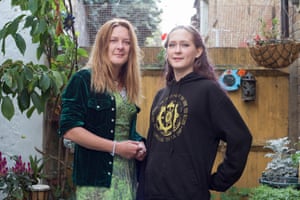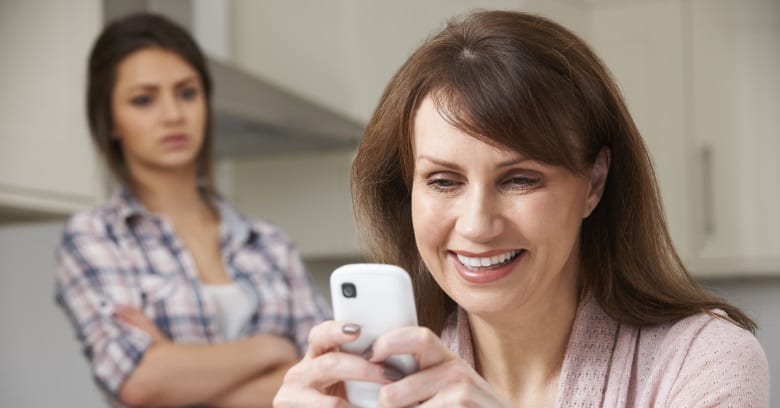For the Povey family, the benefits of Molly’s post are visible each day. His tearfulness has declined. The whole household is happier. Molly herself has found, in the Facebook page, a community that makes her feel supported and which, in turn, needs her. “And now you’ve got a responsibility,” Ian says. “It’s a strange thing.” He himself has never read the initial post, usually declines to appear in photographs, and thinks that when it comes to sharing, “It’s best to err on the side of caution.” Occasionally, Molly tells her community that Roman is having a bad day, or that she is: she doesn’t want to pretend to people who know loneliness that loneliness doesn’t happen. And yet, as Ian says, “It’s difficult to know sometimes what Roman really thinks about it.”
Molly leads the way up to Roman’s bedroom, to show more of the gifts people sent. There is James Bond notepaper from the actor Andrew Scott, who played the baddie in Spectre, and a crew T-shirt from Star Wars: Episode III.
I wonder if Roman minds thousands of strangers knowing he’s sad. “Do you mind?” Molly asks him. “Do you mind that people know you get really lonely?”
“Maybe,” Roman replies. “I don’t know. I’ll go yes: I don’t like it.”
“You don’t like it?” Molly repeats, incredulous.
“No.”
“What, that people around the world know you are lonely?”
“Yeah.”
“You don’t like it now?” she asks again.
“No.”
“Oh,” Molly says. She sounds deflated.
“It just feels weird, it does,” Roman tells her.
Although Molly has publicly revealed aspects of her son’s emotional life that other parents might hesitate to share, she is not incautious. For months she withheld Roman’s full name and has only recently felt comfortable disclosing that he is autistic. Before her heartfelt post, she deleted baby pictures of Roman’s older brother because he was about to start secondary school; surely the Kingsford debaters would approve.
Like Alicia Blum-Ross and Heather Whitten, Molly has rules. “Think about whether it’s appropriate – if in a year or five years your child would be embarrassed by anything you’ve done. And just why are you actually doing it? Is it a positive thing, or is it to give you a social boost as opposed to the children?” Molly might appear to be at the opposite end of the spectrum from Tamasine Preece, who never posts, but the morals that underpin their behaviour are remarkably alike. And while Molly thinks “you shouldn’t be posting pictures of kids in the bath”, in some ways her posts are as exposing as Whitten’s.
Later that evening Molly emails to say that the conversation with Roman had troubled her. After I’d left the house, she offered to take down the page, she says, but Roman said not to. “Turns out he was confused in his room and was talking about not liking being lonely, and not his page.”
Or maybe Roman, in that moment, wished no one knew he was lonely. Then, later, when his mother checked, he minded less. Or maybe he understands that the community his mother has created has benefited him and his family. But these are only guesses. It is impossible to know. He is young, and the world changes many times a day. His parents have his best interests at heart, but like any who share news of their children, every time they post, they cross a line between privacy and publicity. Where each parent sees the line is an unsteady, unsettleable question. For Roman, and others like him, the truth may be something they are still working out, or simply prefer not to share.
‘I’ve gone online after a few glasses of wine and said things I shouldn’t have’: parents and children talk social media

Elaine Star, 47, a PA and poet, and her youngest daughter Sadie, 17, a student, live in Brighton
Elaine I’ve had a Facebook account for about 10 years, so Sadie was probably seven when I first joined. I use it to keep in touch with different groups of people – old friends, my poetry group, the puppet show I work with. I’m also friends with a lot of my kids’ friends, because it’s often the best way of locating where mine are. I don’t think it bothers them. All their friends are happy to come to the house and sit around my kitchen table and chat, so I don’t think it’s odd. I don’t post on their friends’ pages – maybe just a “Happy birthday” message. But I’m really impressed by the sorts of things they share about science, politics – they’re very funny and insightful.
I have definitely made mistakes online. I’ve gone on after a few glasses of wine and said things I shouldn’t have. There have been some angry messages about the state my kids and their friends have left the house in. And they have all asked me to take down various photos. I get it: I’m sensitive to the fact that they’re trying to be cool or whatever.
I think I’m past the stage of worrying too much about embarrassing my kids. I write poems that are very personal, and I share them on Facebook. But that’s how I express myself. The kids have occasionally said, “Stop living your life on Facebook” but I’m an open person.
They’re all fairly streetwise. We have a very open dialogue in our house. They have occasionally posted things that I think are a bit questionable – showing off a bit about drinking with their friends, that sort of thing. I might have said, “Hmm, you might want to think about that” but I’ve never said, “Take that down.” I’m glad Facebook wasn’t around to record my teenage years, though. I’d hate it.





![[Video] How to get rid of bed bugs in Toronto](https://www.thehowtozone.com/wp-content/uploads/2019/10/maxresdefault-2-100x70.jpg)


